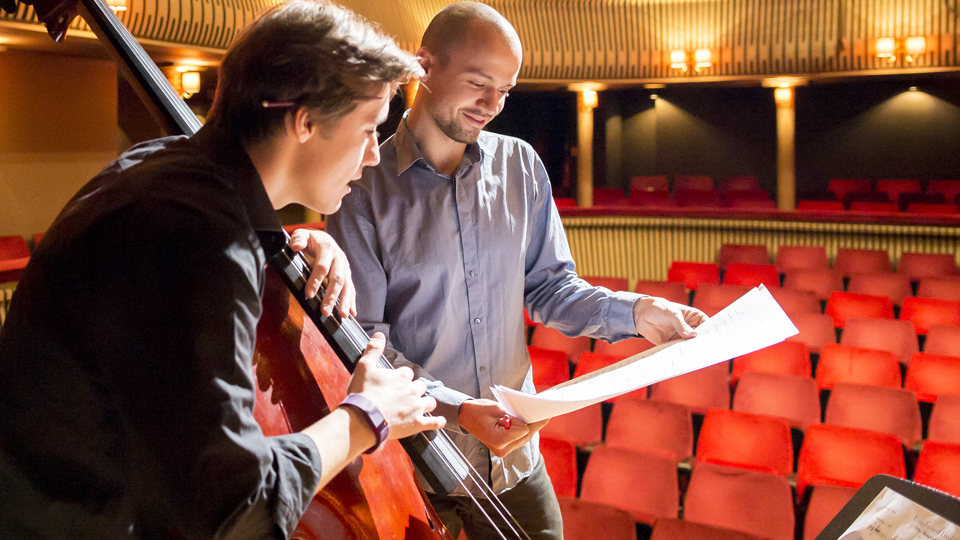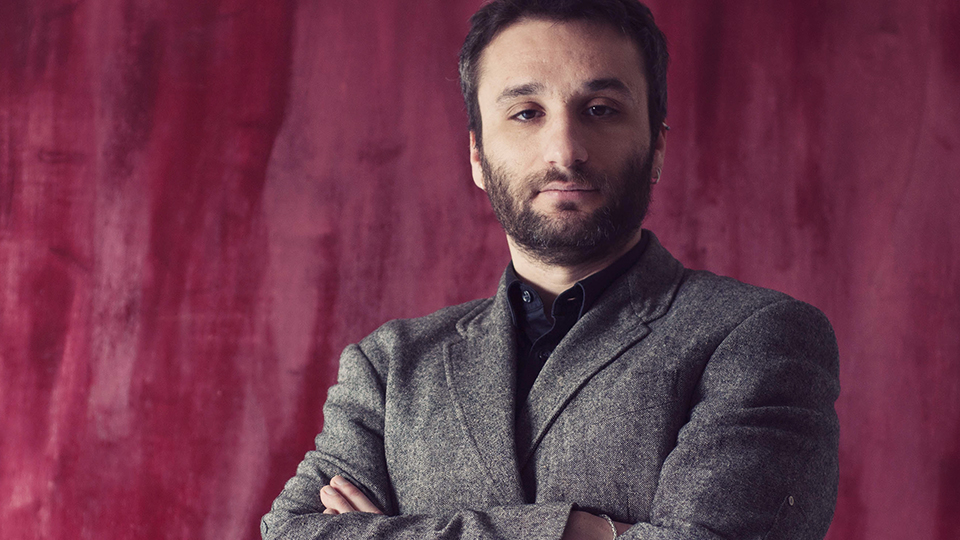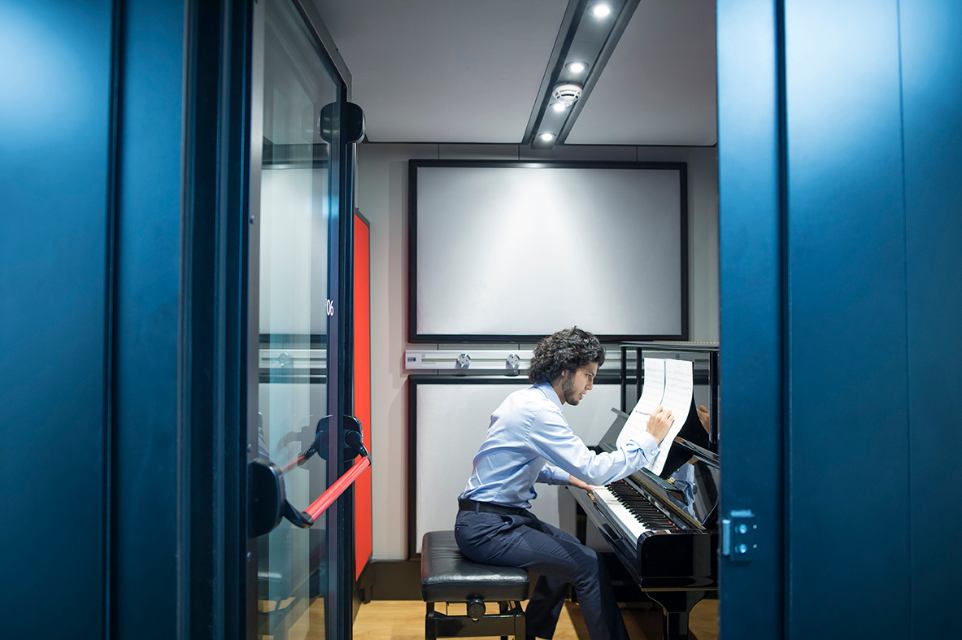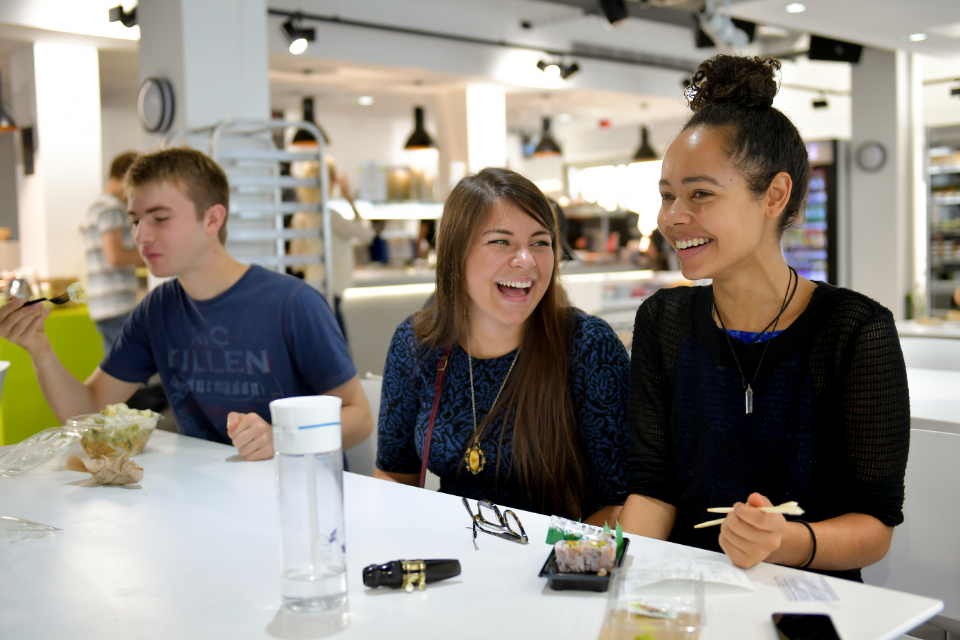Master of Composition
UCAS code
Composition: 821F Composition for Screen: 705F
Start date
September 2024
End date
July 2026
Duration
2 years full-time or 3 years part-time
Masters qualifications & study routes Learning & teaching Opportunities Entry requirements How to apply Enquiries
Normally taken over two years, the Master of Composition (MComp) develops composer’s practical skills, complemented by options which reflect current vocational and professional needs. Such skills are particularly relevant for those who aim to enter the profession as practitioners at the highest level and who need to meet the current practical demands of the music industry.
We also offer Composition for Screen as a principal study specialism for students looking to hone their skills and develop professional connections in this rewarding and competitive field.
Find out more about Composition for Screen
The MComp qualification can provide the basis for further artistic development through the RCM’s Level 8 Artist Diploma in Composition or Composition for Screen.
Masters qualifications & study routes
The RCM's Masters programme for performers and composers offers two different study routes, which lead to different degree qualifications.
If you are not sure which Masters qualification is best for you, please only submit one application. We recommend applying for the (MMus) initially, which has higher academic entry requirements. You are then welcome to discuss your options at your audition. You may be accepted on the MPerf/MComp route instead.
The Master of Performance (MPerf) and Master of Composition (MComp) route develops your performance or composition skills to a high professional level through intensive training.
The MMus(Perf) and MMus(Comp) routes augment MPerf/MComp study with two additional research-led modules, which are designed to train your critical, analytical and research skills, as well as your ability to express yourself verbally to a high level. Owing to the additional emphasis on research, both MMus strands are a more intensive undertaking that also require an ability to speak and write confidently in English.
If you are offered a place on the MMus and, prior to beginning your studies, decide the MPerf/MComp better suits your interests, you can switch routes. You may also be able to transfer from the MMus to the MPerf/MComp route when you start the Masters Programme in September, although we recommended making a final decision before arriving at the RCM, especially if you require a Student visa to study in the UK.
Learning & teaching
Our Masters programmes are designed to be flexible, ensuring you can shape your studies according to your needs and aspirations. A variety of professionally-focussed options in areas including digital musicianship, music education, contemporary music, performance science and project management, help every student develop their interests during their time at the RCM.
One-to-one lessons are at the very heart of every RCM student’s learning experience. The RCM’s impressive list of professors includes renowned instrumental and vocal soloists, distinguished repertoire and operatic coaches, prominent composers and conductors, plus principal players in major London orchestras such as the as the London Symphony Orchestra, Philharmonia Orchestra, London Philharmonic Orchestra, BBC Symphony Orchestra and Royal Opera House Orchestra. Our world-class professors offer students not only first-rate teaching, but also mentorship and networking opportunities.
All principal studies are delivered through a combination of one-to-one tuition complemented by performance classes, workshops, masterclasses, lessons from visiting professors, ensemble activities, seminars and lecture series as appropriate.

Royal College of Music courses are internationally recognised as full degree courses with successful students awarded their qualifications under the RCM's Royal Charter.
The RCM welcomes applications from students wishing to study on a part-time basis. For part-time study, the equivalent 240 credits are studied over three academic years. Optional modules can be selected to complement other professional endeavours and developmental goals, alongside Principal Study performance and the full range of performance opportunities and faculty-based activities. Part-time applicants should apply for the programme as for full-time study and advise the RCM Admissions team of their intention to study on a part-time basis. Entry requirements for part-time applicants are as for full-time study.
You will be taught by a team of world-class professors, many of whom hold principal positions in major ensembles and some of whom are the biggest names in their field. Contextual studies are taught by a range of academics, including those undertaking active research, who are regarded as experts in their disciplines. You may also be taught by external specialists and have the chance to learn with visiting artists.
The staff listed below oversee important areas of learning and teaching on our Masters programme.
One-to-one teaching
The relationship with your one-to-one teacher will be one of the most important during your studies. For a full list of one-to-one teaching staff in your area of study, please refer to our individual faculties.
Contextual studies
A wide range of internal and visiting staff provide tuition in contextual areas including analysis, repertoire, orchestration and inter-disciplinary collaboration.
Opportunities
From the very beginning of the course you will be able to draw on exceptional resources and opportunities, such as the RCM Library, the RCM Museum, the Centre for Performance Science, Creative Careers Centre and RCM Sparks – our outreach and education programme.
Composition at the RCM fosters partnerships with the College's large body of gifted instrumentalists. Composers will hear performances of their own works in a variety of contexts and have the opportunity to benefit from a range of collaborations, which we host regularly with artistic organisations in London and beyond.
RCM students enjoy a wide variety of performance opportunities including orchestral and choral projects, chamber music and solo opportunities, performance in jazz and historical instrument ensembles. The RCM runs a busy events calendar of more than 500 events every year, the vast majority of which feature RCM students.
Faculty-based performance activities include chamber music and duo performance coaching, orchestral training, performance classes, acting and language classes (for singers), music technology (for composers), reed making (for double reed players) and improvisation (for organists).
The Royal College of Music is proud to offer its students fantastic practice and performance facilities with resources to support teaching and learning. We continually improve our facilities to ensure RCM students have the best opportunities.
Explore our facilities with a video tour of the RCM
Key facilities at the RCM include:
- The Amaryllis Fleming Concert Hall - our primary performance venue for orchestras and large ensembles.
- Our 400-seat Britten Theatre, home to the RCM’s thriving International Opera School.
- A new Performance Hall, offering an alternative space for ensembles, with a retractable stage, Fazioli grand piano and variable acoustics.
- Intimate spaces for solo and chamber performance in our Performance Studio and Parry Rooms.
- Sound-proofed Amadeus Music Pods for private practice.
- A purpose-built percussion suite – you can watch a video tour on YouTube.
- Over 160 pianos, including 60 grand pianos and 20 early keyboards, as well as organ rooms.
- A Blüthner Practice Suite which holds ten Blüthner Model A upright pianos.
- Instrument surgeries including luthier services.
- RCM Studios: a commercial-grade facility, enabling live broadcasts around the world.
- Digital Innovation Lab: advanced recording and mixing suite.
- RCM Library with more than 200,000 scores, books and recordings in its lending collection, as well as access to more than 400 music journals.
- Recently refurbished RCM Museum, holding more than 14,000 instruments, portraits and images, as well as a climate-controlled performance space and the associated Wolfson Centre in Music & Material Culture | Royal College of Music (rcm.ac.uk)
The RCM’s Creative Careers Centre, which is recognised internationally for its innovative approach to supporting young musicians, provides an unparalleled service to current students and recent alumni. The dedicated team partners with leading consultants, reputable arts organisations and local communities, delivering unique career-building opportunities and a direct route to the music industry.
The work of the Creative Careers Centre allows students to discover their professional identity, gain hands-on experience and new skills, develop an entrepreneurial mind-set and build a fulfilling professional portfolio.
Extensive performance and teaching opportunities are available, as well as valuable guidance on CV and biography writing, concert programming, communication skills, project management, marketing and publicity, online promotion, financial matters and how to develop a business idea.
The RCM has a large number of student exchange opportunities with leading European, American, Japanese and Australian conservatories and universities. These provide RCM students with the opportunity to study abroad and students in other countries to benefit from a period of study with us in London.
Masters students who choose to take part in exchange programmes go abroad in the Autumn term of their second year of study.
Course reviews
RCM courses are reviewed annually in response to student and external examiner feedback, which sometimes results in minor changes, such as the availability of particular modules. A more thorough review is undertaken every five to six years, after which more substantial changes may be made while maintaining the ethos that underpins the course. Our review process is part of the RCM’s continued commitment to provide the best possible education and music training. The information provided here reflects the official course outline as it currently stands. In the event of alterations following a review, we will update this page as soon as possible.
Entry requirements
All offers for composers are made on the basis of their portfolio and interview.
Candidates require an undergraduate degree or an equivalent international qualification, usually in music.
The RCM welcomes applicants from all backgrounds and alternative qualifications may be considered. If your qualifications are not listed here, please contact our Admissions team, who will be happy to discuss your suitability for the programme.
English language requirements
All applicants must be able to demonstrate that their level of English language ability meets the Royal College of Music’s minimum requirements in order for their application to be accepted.
If you require a visa to study at the RCM, you must meet the English language requirements before the RCM is permitted to sponsor your visa application.
How to apply
The main application deadline has now closed for this course however late applications may be considered. Please contact our friendly Admissions team to discuss your application further.
All applicants (including international applicants) should apply online through the UCAS Conservatoires admissions service, where you can apply simultaneously to all the institutions that are members of Conservatoires UK. You can track your application, find out when your audition is and get the results of your audition all on UCAS Conservatoires. You can also confirm your decisions online.
Guidance on completing your application form is available on the UCAS Conservatoires website. As part of your application you will require two references: one practical (normally from your current principal study teacher) and one academic (normally from someone at your current/previous educational institution who can comment on your academic ability). You must enter your referees’ details into the application, and an automated e-mail will be sent to them requesting a reference. Only once your referees have responded will your application be forwarded to the RCM, so it is important to begin your application in good time. Further guidance is available from UCAS Conservatoires if you think your referees may not be able to provide a reference in time.
If you are a current RCM student applying for a postgraduate performance or composition course, we only require a practical reference as we can verify your academic record. To enable you to submit your application, for the academic reference, tick the option to submit an offline reference. You will still need to enter details of a referee, but ticking the box will enable you to submit your application without UCAS sending them a reference request. However, note that if you are also applying to other conservatoires, you are likely to need an academic reference too.
All application fees are paid online through UCAS conservatoires.
UCAS Conservatoires application fees - 2025 entry
Using UCAS Conservatoires incurs a £28.50 application fee. This is in addition to our assessment fees. You cannot use another system and both the application and assessment fees are paid online through UCAS Conservatoires. If you encounter any problems with their payment system please contact their support team.
RCM Audition fee waivers (59 kb)
If you change your mind about applying, you can contact UCAS Conservatoires to cancel and request a refund. To be entitled to a refund you must cancel within 14 days of the date you submitted your application. You can find further details about how to do this, and also information about amending your application details, on the UCAS Conservatoires website.
Interviews for composers
We are planning to hold live interviews in London in 2023, although applicants who cannot travel may submit a video audition instead. You will still be considered for a scholarship using this method.
This applies to candidates for Composition and Composition for Screen who have been selected for the second stage of the audition process.
Composers audition by submitting a portfolio of work to the RCM for consideration. Composition interviews take place at the RCM in London but video interviews are available.












